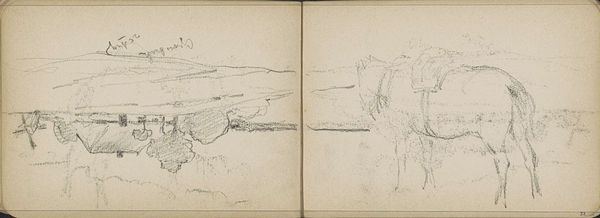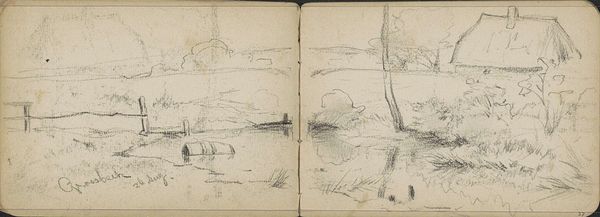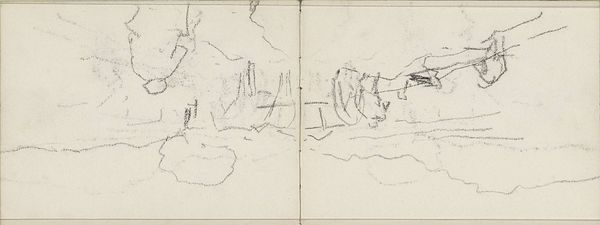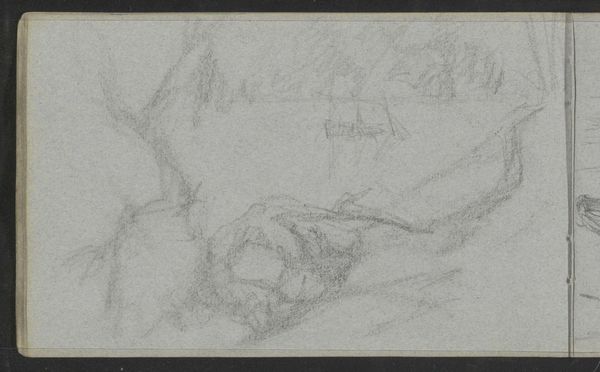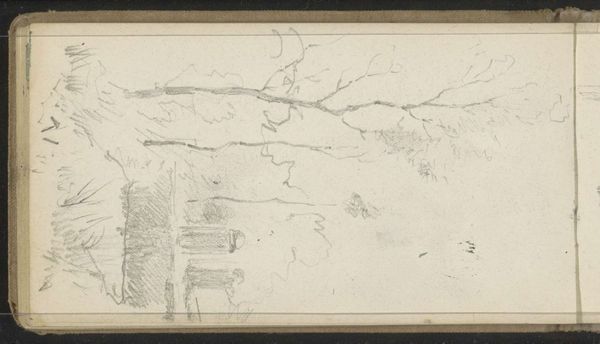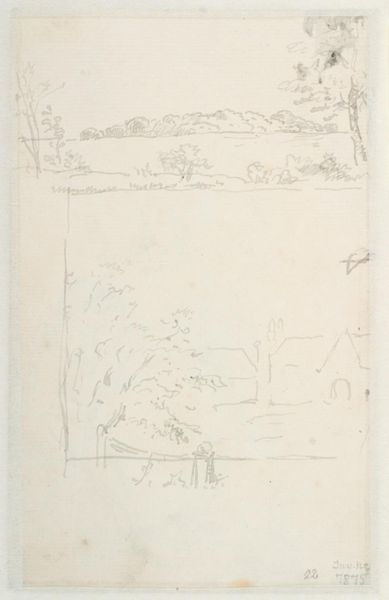
#
light pencil work
#
sketch book
#
incomplete sketchy
#
hand drawn type
#
personal sketchbook
#
sketchwork
#
forest
#
pen-ink sketch
#
sketchbook drawing
#
sketchbook art
#
initial sketch
Copyright: Rijks Museum: Open Domain
Curator: Looking at this pencil sketch from Matthijs Maris, dating sometime between 1849 and 1917, housed here at the Rijksmuseum… what captures your attention? Editor: It’s remarkably delicate. Almost like a fading memory captured on paper. The figure, barely there on the pier, seems to blend right into the watery landscape. There’s a pervasive sense of melancholy. Curator: Maris' work often explores that kind of ephemeral quality. The light pencil work here is suggestive rather than definitive, inviting the viewer to complete the image in their mind. Editor: It makes me think about the relationship between humans and the environment during that period. Industrialization was ramping up, urbanization was pulling people away from nature. Was he depicting a disappearing way of life, the alienation of humans from the natural world? Curator: That's certainly a compelling reading. Given his inclination for introspective symbolism, the lone figure could signify a soul disconnected from the world. It speaks of a sense of romantic yearning, a common theme among artists of the late 19th century grappling with modernity. Editor: I notice that it is from a sketchbook and is more than an "initial sketch." I wonder if there is a deliberate unfinished quality that heightens the emotional impact of being somehow lost or fleeting. Maybe it embodies the sense that one can never truly grasp nature completely? Curator: Possibly, as with much of symbolism, this piece works in layers, the formal and iconographic blend to convey that deeply complex, perhaps ambivalent sense of an individual's relationship to place. This ambiguity ensures the image can continue resonating today. Editor: Agreed. Its quiet simplicity, far from making it insignificant, becomes a space for reflection, prompting viewers to contemplate their own connection, or disconnection, to the natural world in our rapidly changing times. Curator: Well said. Ultimately, it is the evocative quality that enables us to continue reading, to imagine our own personal connections and associations with it over a century after it was created.
Comments
No comments
Be the first to comment and join the conversation on the ultimate creative platform.







